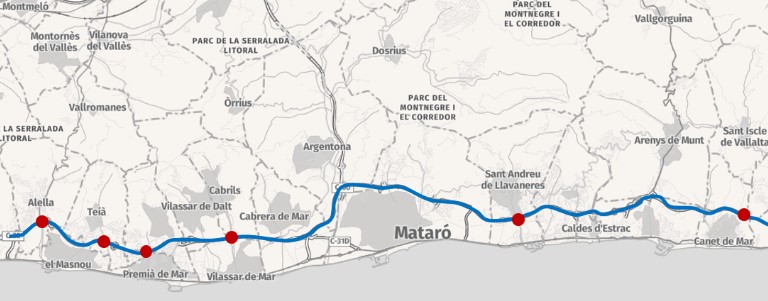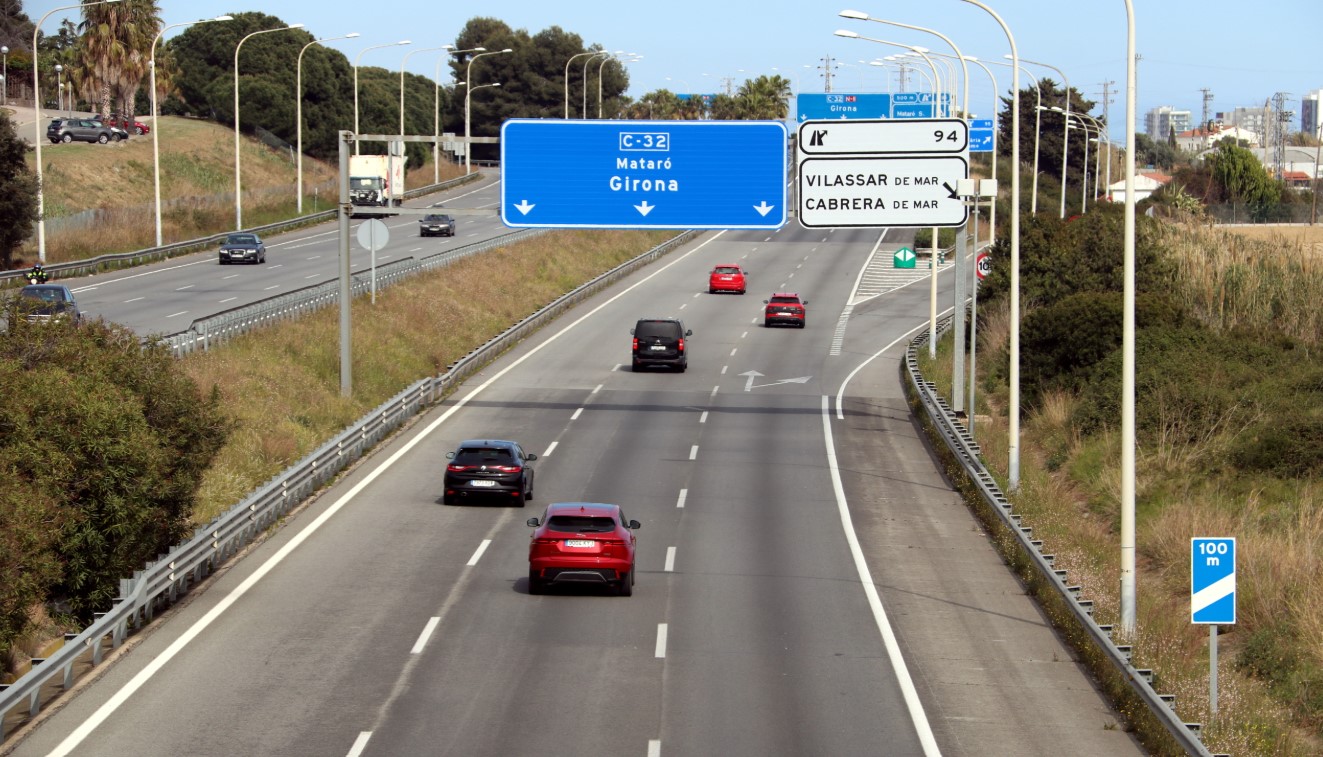The Department of Territory, Housing and Ecological Transition of the Generalitat de Catalunya has officially opened the process of presenting the informative and environmental impact studies for the improvement of the connectivity and functionality of the C-32 highway in the section of just over 30 km that links the towns of Alella and Sant Pol de Mar (Maresme region), and whose planned investment is 120 million euros. Administrations, entities and individuals may submit objections until February 27, 2025.
Specifically, there are 4 new accesses to the aforementioned highway planned in the following locations:
• Teià: The new link will provide access to the C-32 from the central and eastern part of the urban centre of Teià, and will consist of two roundabouts that, by means of connecting branches with the C-32, will allow all possible movements from the road parallel to the Teià stream. It will also provide a connection to the C-32 service area and to the Buvisa industrial estate on its western side.
• Premià de Dalt – Premià de Mar: The new link will be located at the junction with BV-5024, and will complement the accessibility to the C-32 highway from the areas west of Premià de Mar and the Premià de Dalt housing estates. Likewise, the link will connect, by means of a specific road, the Buvisa industrial estate with the highway.
• Vilassar de Mar – Cabrils: The new access will be located at the junction of the C-32 highway and the BV-5022. Currently, Vilassar de Mar has a single partial connection on the east side with the C-32 highway through the junction with the B-5022, and Cabrils accesses the C-32 at the current Premià junction (which requires crossing the municipality of Vilassar de Dalt).
• Canet – Sant Cebrià – Sant Pol de Mar: A junction is planned consisting of two roundabouts on either side of the highway that will be connected by a new underpass to the road from Canet de Mar to Sant Cebrià de Vallalta. The southern roundabout will connect with the Canet centre on Ronda Doctor Manresa street, while the northern roundabout will connect with the Bellavista and Bellaguarda housing estates.
The draft project also includes the improvement of the 2 existing accesses at:
• Alella – El Masnou: The current link will be connected to the northern part of the town of El Masnou and the western part of the town of Teià. To do this, work will be done on the northern side of the existing link, modifying the entry and exit ramps of the C-32 and building a parallel road on the northern side of the highway and three new roundabouts that allow all movements. In this way, it will be connected to the C-32 and also to the municipalities of Alella, El Masnou and Teià. The southern part of the existing link will be maintained.
• Sant Andreu de Llavaneres: It is planned to transform the current link, which only has the entry and exit ramps of the highway on the Barcelona side, into a complete link, which will also allow connections in both directions on the Tordera side.

On the other hand, regarding both the controversial new link planned in the municipality of Calella (whose location has generated strong social rejection), and the improvement of the link that already exists in Pineda de Mar, both preliminary projects will be presented separately throughout 2025, justifying this delay by “the technical complexity they entail“, according to sources from the Department itself.
However, the Regional Minister for Territory, Sílvia Paneque, has pointed out that “this action aims to improve accessibility to the highway, attract traffic from the N-2 and the local network and contribute to more sustainable and safe urban mobility.” In this regard, Salvador Illa‘s Government is working on several projects to pacify the N-2 with the aim of transforming it into a more civic route that complements the urban environment and incorporates a segregated pedestrian and cyclist path that will allow active mobility connections to neighbouring municipalities.
The works on the C-32/N-2 corridor in El Maresme will be financed through the agreement between the State and the Generalitat that is being finalised to adapt the commitments signed by both administrations when Spain’s Central Administration accepted the transfer of ownership of the N-2 to the Generalitat de Catalunya to the new proposals for improving the mobility infrastructure in the region.
Source: Department of Territory, Housing and Ecological Transition – Generalitat de Catalunya



